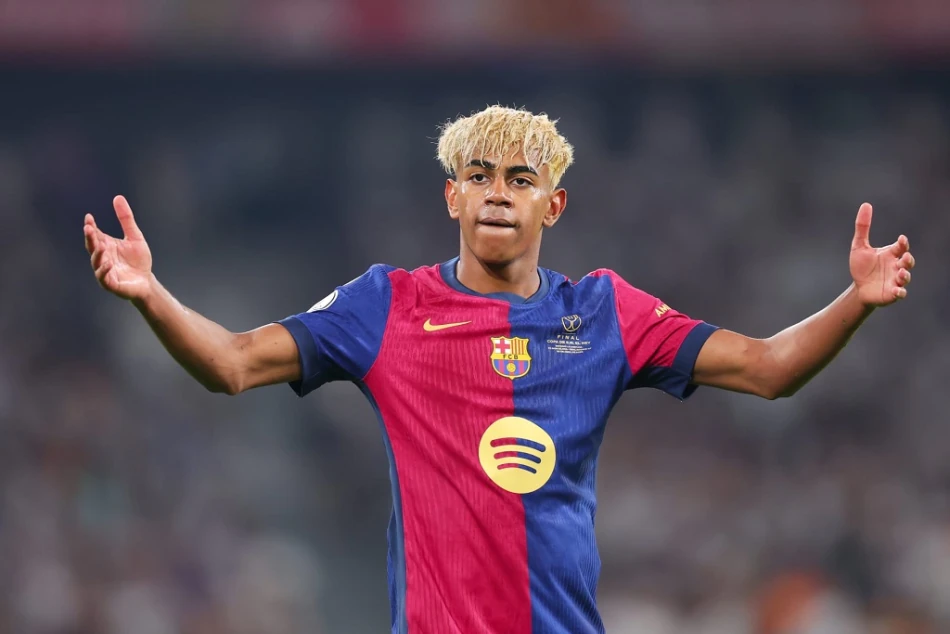
Barcelona Faces Valencia in Unexpected La Liga Clash: Can Catalan Giants Overcome Unusual Circumstances?
Barcelona's Awkward Homecoming: Champions Forced to Play in 6,000-Seat Training Ground
Barcelona's ambitious Camp Nou renovation has backfired spectacularly, forcing the defending La Liga champions to host Valencia at their tiny training facility this Sunday. With only 6,000 seats available at the Johan Cruyff Stadium, Barcelona's "homecoming" highlights the growing pains of modern football infrastructure projects and raises questions about the club's planning capabilities during a critical season.
A Stadium Saga Gone Wrong
After three weeks of away fixtures to start the new La Liga season, Barcelona finally returns home—but not to the gleaming, renovated Camp Nou they had promised. Instead, the Catalan giants will welcome Valencia to their training ground, a venue more suited to youth matches than top-flight football.
The situation arose when Barcelona failed to secure necessary permits to play at their partially renovated Camp Nou, despite initial hopes of hosting limited crowds during ongoing construction. Meanwhile, their temporary home for the past two seasons—the Olympic Stadium—is occupied by a musical concert, leaving the club with no alternative but their modest training facility.
The Numbers Tell the Story
The contrast is stark: Camp Nou's full capacity exceeds 99,000 spectators, while the Johan Cruyff Stadium accommodates just 6,000. Valencia received a mere 290 tickets for their supporters, which sold out immediately—a telling sign of the venue's limitations.
Echoes of Real Madrid's Strategy
Real Madrid faced a similar predicament during their Santiago Bernabéu renovation, playing at their Alfredo Di Stéfano training ground during the 2020-21 season. However, Madrid benefited from COVID-19 restrictions that banned spectators entirely, making the smaller venue less problematic. Barcelona lacks this convenient cover, exposing their planning shortcomings to full public scrutiny.
This comparison underscores a broader trend in elite football: clubs pursuing ambitious stadium projects while maintaining competitive schedules. The pressure to modernize facilities often clashes with sporting demands, creating logistical nightmares that can impact team performance and fan experience.
Sporting Implications Beyond Embarrassment
Barcelona enters Sunday's match trailing leaders Real Madrid and Athletic Bilbao by two points after a disappointing 1-1 draw with Rayo Vallecano. The intimate setting might actually benefit new coach Hansi Flick's efforts to ground his team after their domestic treble last season.
"It's important that there's no arrogance, as this kills chances of success," Flick warned following the lackluster performance against Rayo. The cramped training ground could serve as a humbling reminder of football's fundamentals.
Valencia's Opportunity
For Valencia, the unusual venue presents an unexpected advantage. After suffering a humiliating 7-1 defeat to Barcelona last season at the Olympic Stadium, they now face their tormentors in a more intimate, potentially less intimidating environment.
"We're ready to see if we can achieve a positive result," said Valencia midfielder Pepelu. "We've worked on correcting the mistakes we made last season."
The Broader Infrastructure Challenge
Barcelona's predicament reflects wider issues facing European football clubs attempting major renovations while maintaining operations. Unlike American sports, where teams can relocate temporarily to purpose-built venues, European football clubs often lack suitable alternatives in their cities.
The Camp Nou project, expected to complete in 2026, represents a €1.5 billion investment aimed at maintaining Barcelona's status among football's elite venues. However, the current situation demonstrates how infrastructure ambitions can create immediate competitive disadvantages.
Market and Fan Perspective
From a commercial standpoint, playing at a 6,000-capacity venue significantly impacts matchday revenue—a crucial consideration for a club managing substantial debt. The reduced ticket availability also strains relationships with season ticket holders and corporate partners who expect premium experiences.
For investors and stakeholders, this episode raises questions about project management and contingency planning at one of football's most valuable brands. The inability to secure permits for even limited Camp Nou access suggests either overly optimistic timelines or inadequate regulatory coordination.
Barcelona president Joan Laporta's promise that "we will return to Camp Nou as soon as possible" rings hollow given the current circumstances. The club's youngest squad in La Liga (average age 24.4 years) may benefit from the humble surroundings, but the broader implications extend far beyond Sunday's match result.
Most Viewed News

 Sara Khaled
Sara Khaled






